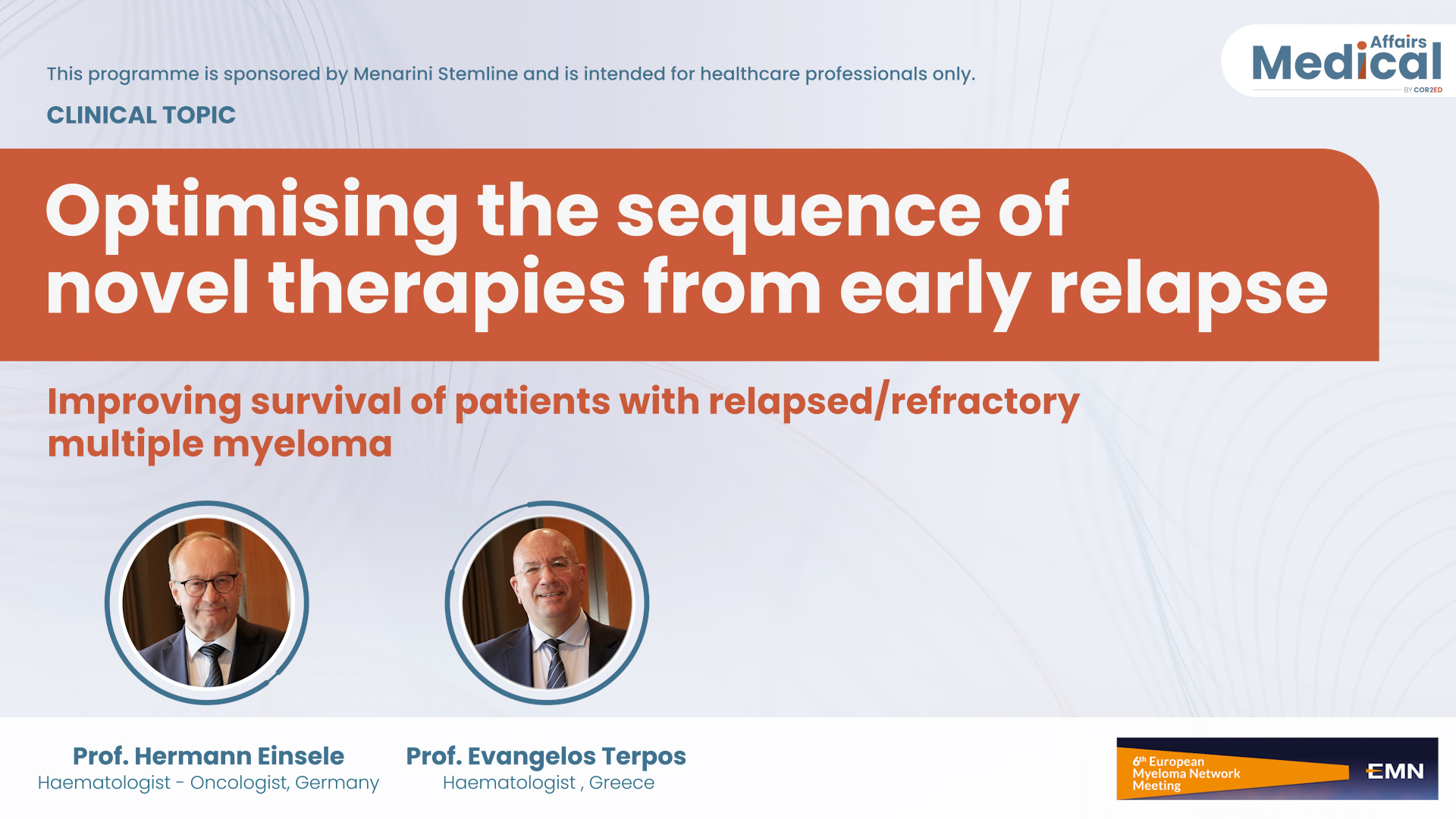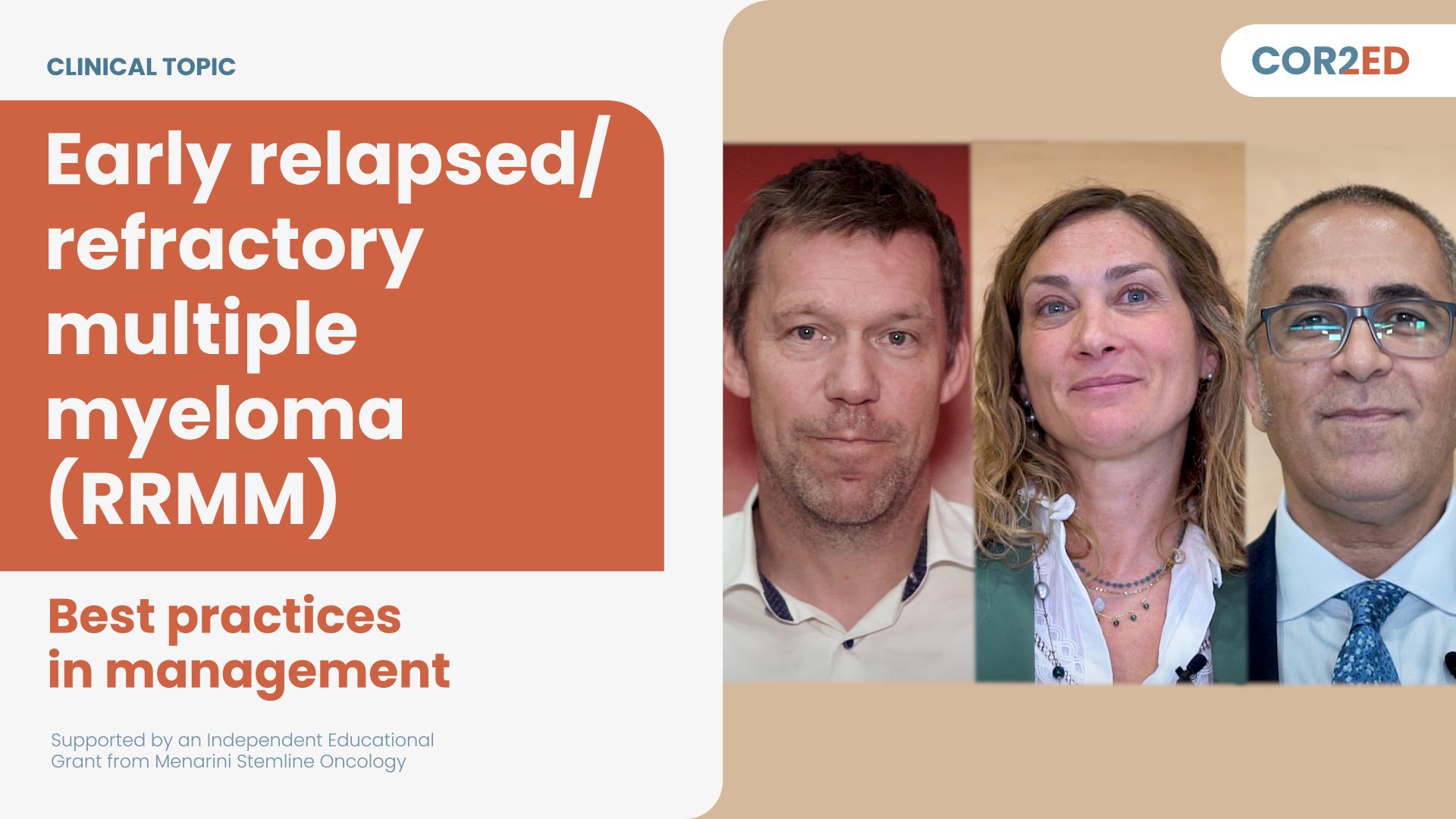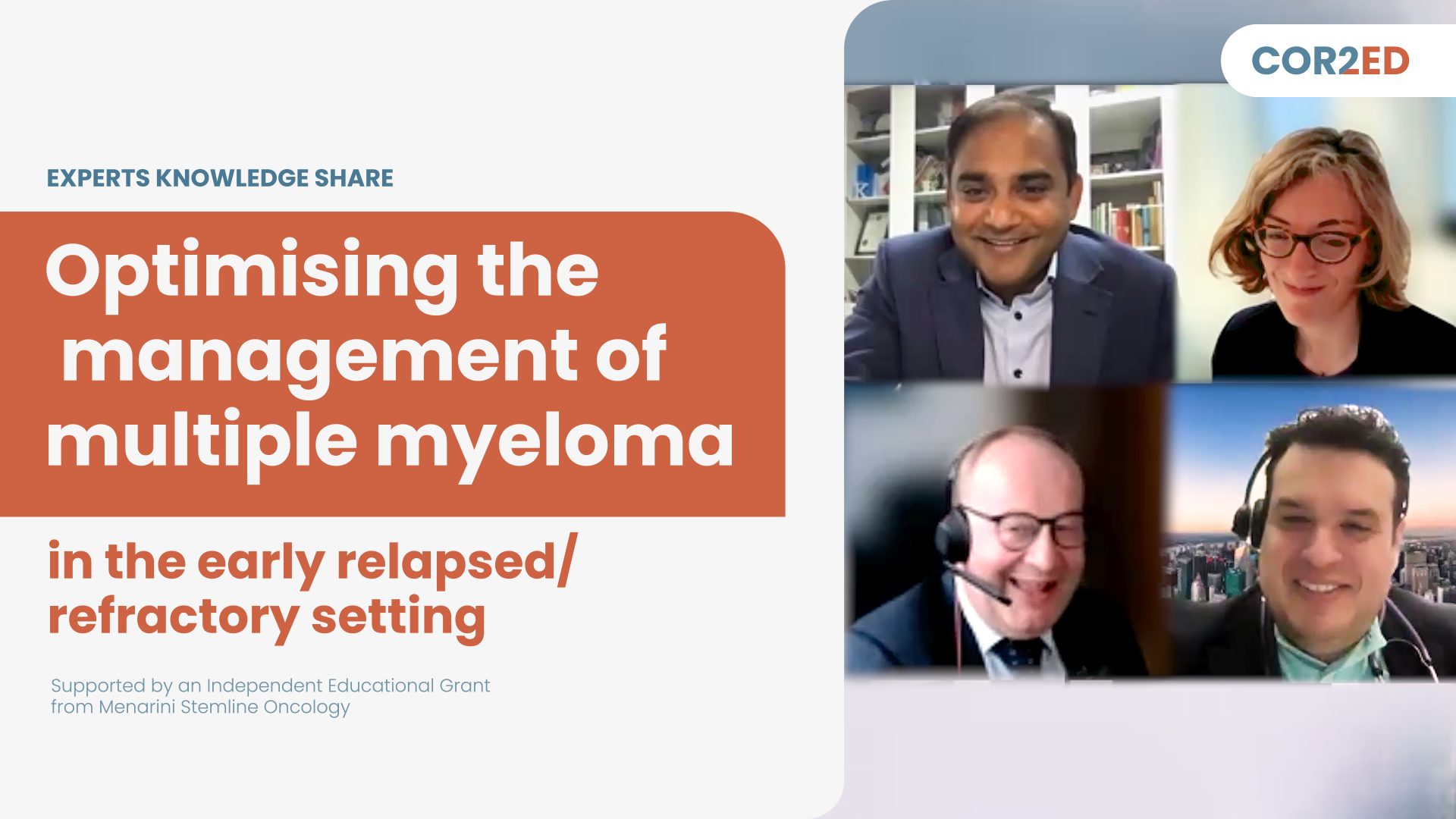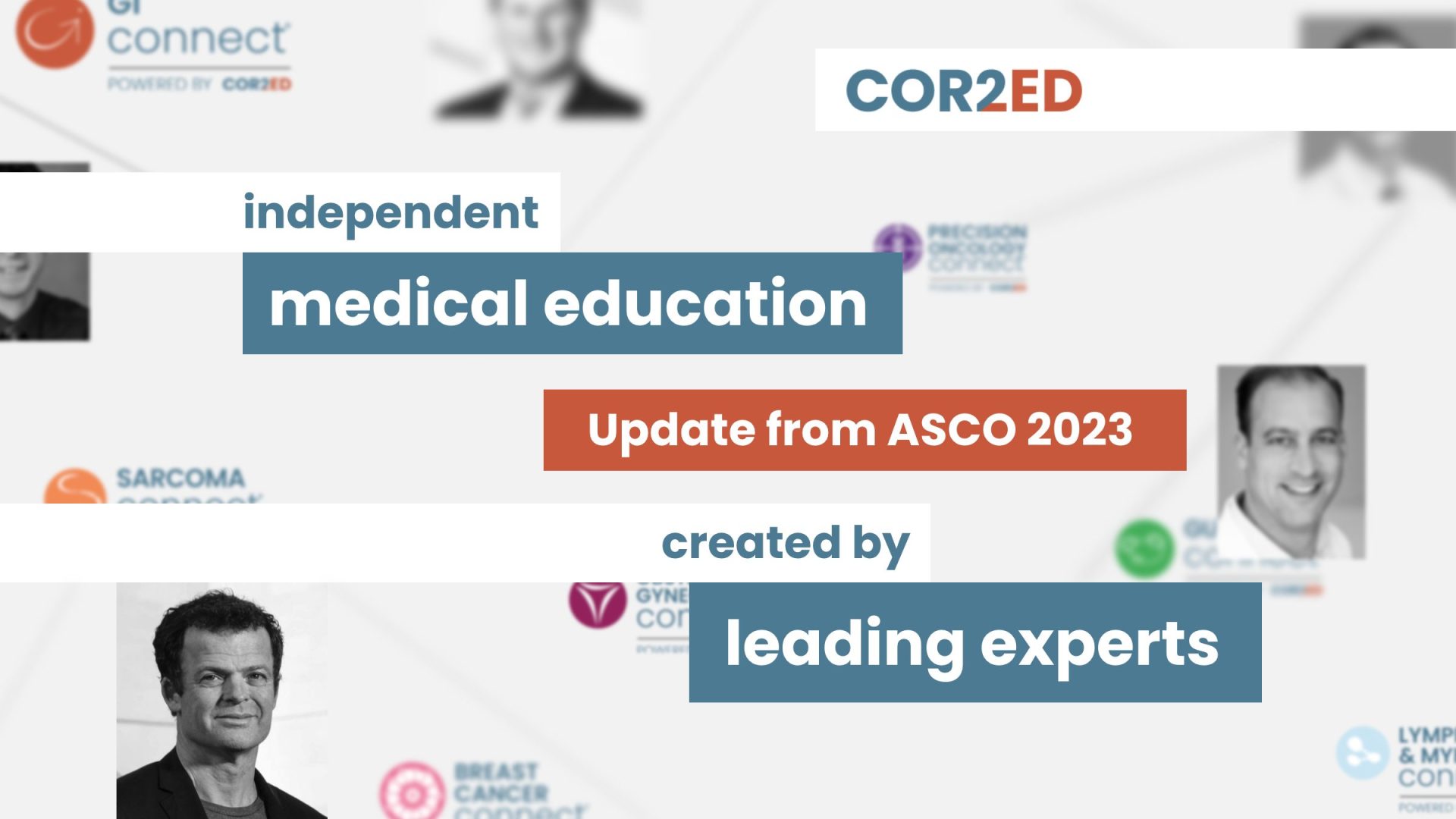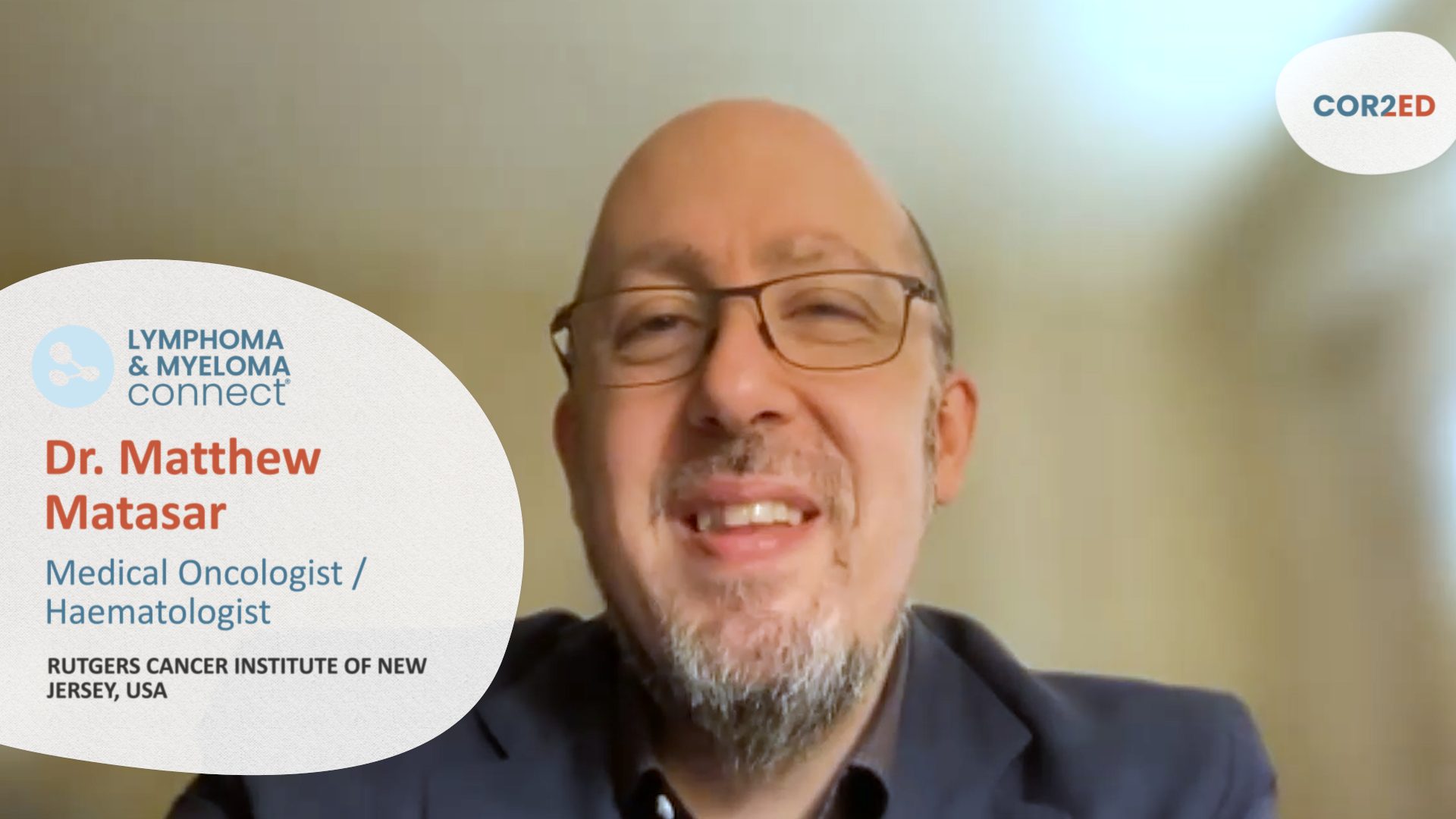Video Transcript
Hi, my name is Hans Lee from MD Anderson Cancer Center in Houston Texas. There was a lot of exciting data presented in multiple myeloma at the ASCO and EHA annual meetings that just concluded earlier in June.
Which abstracts did you select?
In this video I’m going to be highlighting several exciting abstracts, including the Phase 3 MAIA overall survival results in newly diagnosed, transplant ineligible multiple myeloma patients. I’ll also be highlighting updated data in some of the novel therapies being explored in multiple myeloma, including two BCMA CAR-T therapies, idecabtagene and ciltacabtagene. Finally I’ll be highlighting updated data from the Phase 3 ANDROMEDA study, which was a study looking at daratumumab, cyclophosphamide, bortezomib and dexamethasone in newly diagnosed AL amyloidosis.
What were the main conclusions and how will they impact clinical practice?
MAIA
The first abstract I’d like to highlight was a late-breaking abstract presented at EHA: the overall survival results of the MAIA study. So the MAIA study was a Phase 3 randomised study in newly diagnosed, transplant ineligible patients, comparing daratumumab, lenalidomide and dexamethasone versus lenalidomide and dexamethasone. We know from the previous results that have been presented, that the overall response rates, the depth of response and the progression free survival all favour the daratumumab-containing arm in this particular study.
What was highlighted in this late breaking abstract is that with longer follow up the median overall survival was actually significantly higher in the daratumumab-containing arm, with two thirds of patients alive at five years in the daratumumab-containing arm versus just over 50% of patients alive at five years in the arm with lenalidomide and dexamethasone alone. So, I think this abstract really highlights and confirms the use of daratumumab, lenalidomide and dexamethasone as a standard of care, and perhaps the preferred standard of care for newly diagnosed, transplant ineligible multiple myeloma patients.
CARTITUDE-1
Moving on to the relapsed/refractory multiple myeloma space. There was updated data presented on ciltacabtagene autoleucel, which is a BCMA CAR-T therapy, presented at both ASCO and EHA. We know from previous data that this therapy has elicited unprecedented response rates and depths of response in really heavily pre-treated multiple myeloma patients, with a median of 6 lines of prior therapy and nearly 90% of patients being triple class refractory (to immunomodulatory imide drugs [IMiDs], proteasome inhibitors and anti-CD38 monoclonal antibody-based therapy).
The data presented at ASCO and EHA really highlights the longer-term follow-up data demonstrating that these responses also seem to be very durable, with the median progression free survival not reached yet and an 18-month progression free survival at 66%.
This is really demonstrating encouraging data with this novel therapy in a very challenging patient population to treat.
KarMMa
Likewise, there is updated data presented with idecabtagene vicleucel, another BCMA CAR-T therapy that was actually the first BCMA CAR-T therapy to garner FDA approval in March 2021. It is currently under review by the EMA. We know that this CAR-T therapy elicited very deep responses and impressive progression free survival in a very heavily pretreated patient population, like ciltacabtagene autoleucel. With longer follow up we now see an overall survival result reported of just under 25 months for patients treated in the Phase 2 pivotal KarMMa study.
ANDROMEDA
Finally, I’d like to highlight data in an AL amyloidosis study. Updated results with longer follow up were reported on the Phase 3 ANDROMEDA study. This study compares daratumumab plus cyclophosphamide, bortezomib and dexamethasone (CyBorD) with CyBorD alone in newly diagnosed AL amyloidosis patients. We know from previous reports that the study did meet its primary endpoint with a tripling of complete haematologic response rates in the daratumumab-containing arm. This actually ultimately led to the FDA approval of subcutaneous daratumumab for newly diagnosed AL amyloidosis patients earlier in 2021. It is currently under review by the EMA.
I think what was really exciting about the longer-term follow-up data is that we see not only very high complete haematologic response rates in patients who received daratumumab-CyBorD, but at 12 month follow up we actually see continued organ responses and a doubling actually of organ responses in both the heart and the kidneys at 12 months in the patients receiving daratumumab-CyBorD versus CyBorD. This really establishes subcutaneous daratumumab plus CyBorD as a standard of care in newly diagnosed AL amyloidosis.
Thank you
I’d like to thank everyone for watching this video on some of the highlights presented in multiple myeloma at the EHA and ASCO annual meetings.
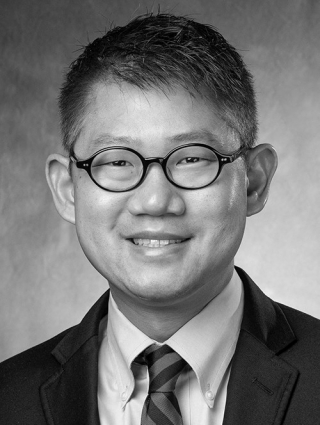
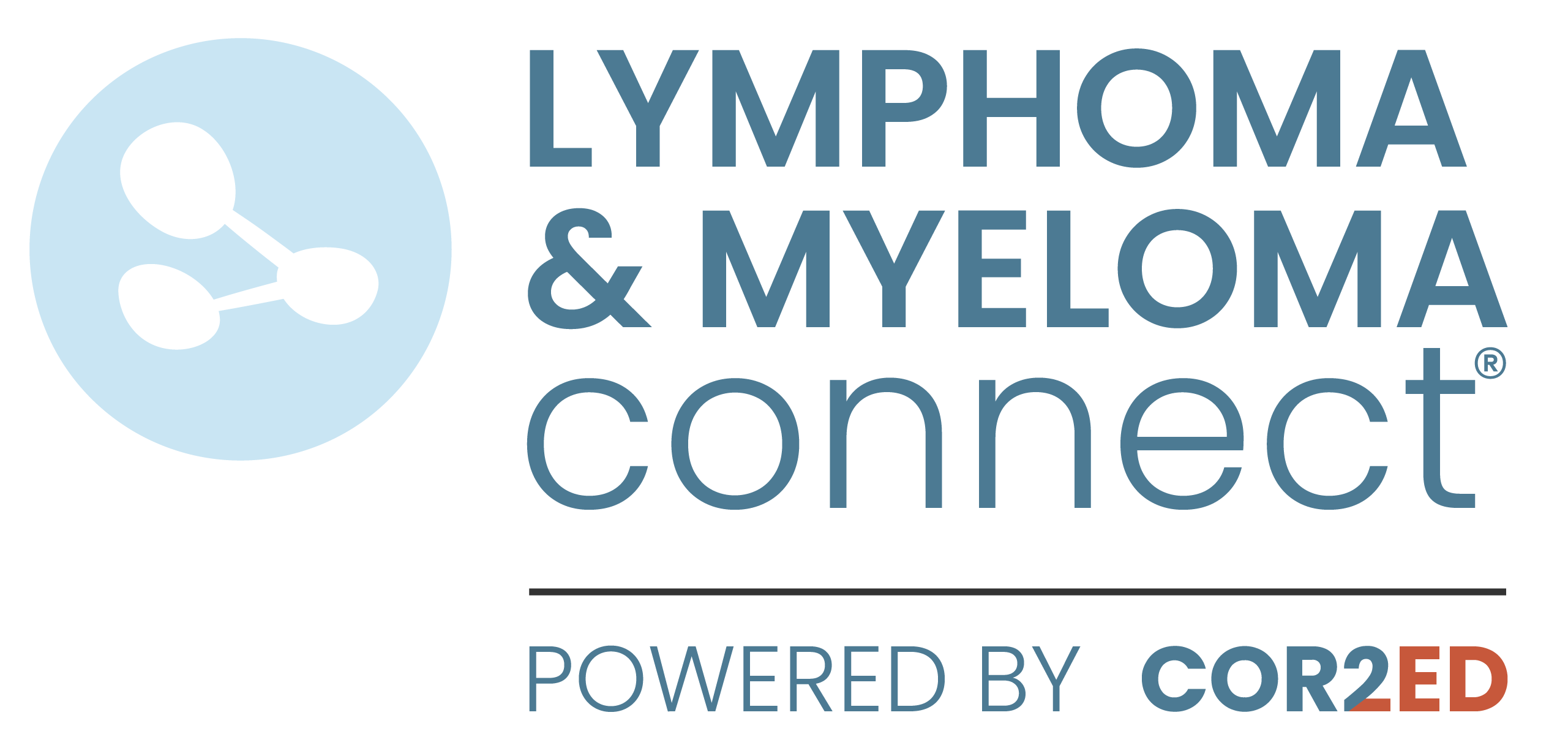


 Downloadable
Downloadable  3 MIN
3 MIN
 Jun 2025
Jun 2025 